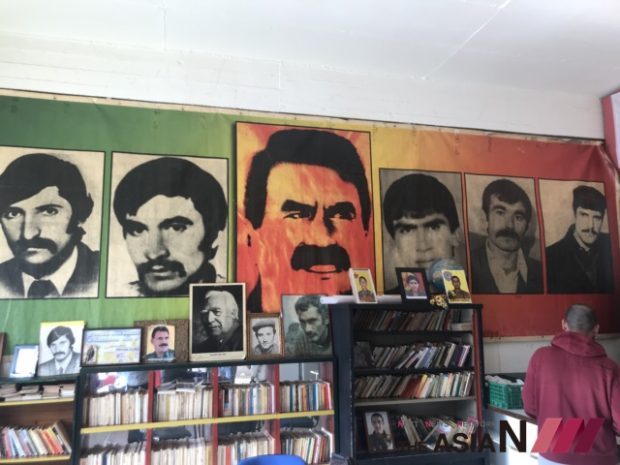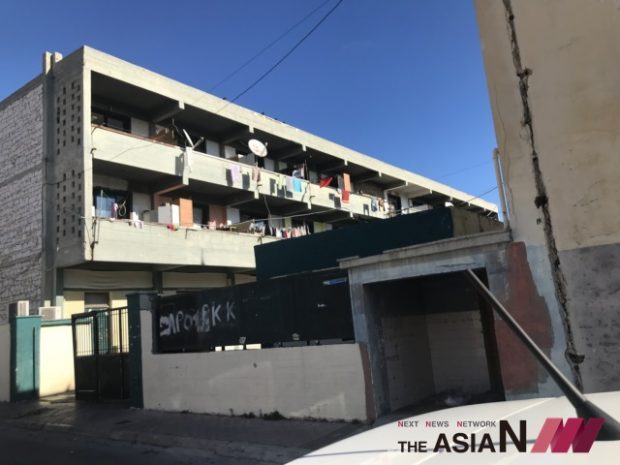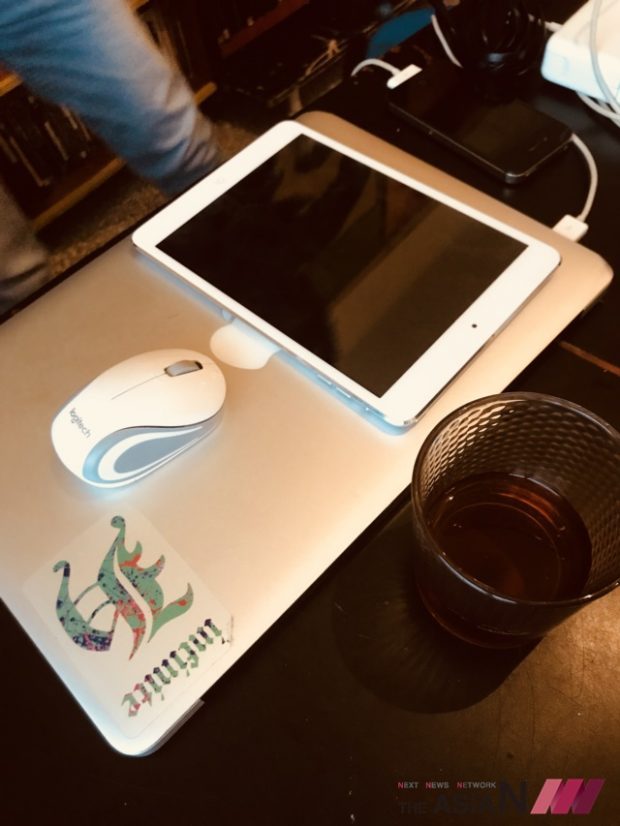In their secret Kurdish Enclave; Are the PKK a Terrorist Group?
Spread across the borders of countries such as Iran, Iraq, and Turkey, the Kurds are a largely nomadic people numbering over 30 million in population. Approximately 4,000 years ago, they were an indigenous group living in the highlands of Kurdistan (part of the Ottoman Empire)—present day south-eastern Turkey and areas across north-eastern Syria, northern Iraq, and north-western Iran. In the aftermath of World War I and the defeat of the Ottoman Empire, the fate of the Kurds would be decided by world leaders eager to bargain territory to their advantage. Eventually, under the Sykes-Picot Agreement headed by victorious allies Britain and France, Kurdistan was divided into its respective modern-day boundaries. Today, almost half of all Kurds reside in Turkey where any effort at establishing an independent state has always been cruelly denied. Kurdish resistance escalated into the formation of the Kurdistan Workers’ Party (PKK) but militant strategies were met with fierce opposition, resulting in Kurds fleeing to neighboring countries for refuge.
In this special report, meet Lee Sin-seok, war zone correspondent to Magazine N who has visited and reported on the Kurds over a period of more than a decade. The following gives an account of his most recent trip to Greece, December 2017, following the footsteps of the Turkish Kurds. -Editor’s Note
I met Juanis, an Uber driver, the very first time I visited Athens. I called him up again, and we soon headed towards Lavrio at the southern tip of Greece. A couple of people were standing by the camp’s front gate. When I asked them, “Do any Kurdish people live here?” they told me that everyone in this camp was in fact, Kurdish. One young man said that he was from Turkey, and to my pleasant surprise, from Cizre, a town at the southeastern Anatolia Region of the country. Excited, I took out my phone and showed him a picture I had taken with a Kurdish family in a previous trip to Cizre. He pointed to a person in the photo saying, “That’s my friend”.
Overjoyed, we both embraced. I had only met the young man for a moment, but the photo had become a common thread that we shared. He asked me if I had eaten, leading me to his own room. We went up a staircase to the second floor and in my periphery, I could see PKK signs and photos of the leader, Abdullah Öcalan, hung on the walls. My Cizre friend showed me his room without hesitation, which I accepted as a sign of trust. I greeted several others in the room, explaining who I was and where I had come from. In a short while, we were all talking like old friends as I shared about my work and the places I had been.
I could tell from the onset that this particular camp in Lavrio was not your ordinary refugee camp. Everyone here was Kurdish, and even though they appeared to be getting aid from the Red Cross—by the authority of national immigration officials—all the particulars of the camp were being run by the Kurds themselves. By all means, it was a self-ruling Kurdish enclave. Undeniably, there is the view of the PKK as a terrorist organization. But it is also true that the PKK are at the frontlines in the fight against the Islamic State (IS). While it cannot be said that everyone in the camp was a member or supporter of the PKK, I could feel the people’s overwhelming desire to found an independent Kurdish State.
Back in my own dormitory, as I got ready for bed, my thoughts were filled with the plight of the Kurds, isolated in their unauthorized camp. All they wanted was a territory they could call home. But I knew it was unlikely for any organization such as the European Union to help a group now largely considered another terrorist faction. What did justice mean in this place, for this people? Was it right for me to come here to report of their difficulties in the first place? But I had already made my decision. Whatever it would take, I was going to be a voice for the vulnerable; people in dire need of help but having no where to turn to, people without a home.
Early next morning, I returned to the camp to see the friends gathered together. I reached into my bag and offered them gifts—a Macbook, Ipad, and Iphone—that friends in Korea had kindly given up for the Kurds. The Kurdish men seemed worried, unsure of what to do. They told me that they were not allowed to receive any gifts personally. Any item first had to go through the camp manager. I came back to my friends with the authorized gifts and soon the men were shouting and cheering with delight.
Another one of the men introduced himself to me as Sahin Budak, he was from Diyarbakir, one of the largest cities in southeastern Turkey. I turned to the others as well, going off from where we had stopped in our earlier conversations. As we were talking, I was asked, “Do you consider the PKK a terrorist group?” I told them as honestly as I could, “Many people in the world think so, but I don’t.” In an instant the room fell cold. A large muscular man who had been lying on the bunk bed next to us came up to glare at me. Sahin suggested we talk outside.
When we were at the cafeteria, everyone had taken their seat, and I realized the large man, now wearing sunglasses, was pulling out the chair right next to mine. His name was Hakki. I could tell he was geared to suppress me at any moment should the need arise. The conversation at the table was led by Mutla, also from Diyarbakir. He seemed gentle and very composed. I had a feeling that ranked quite high in the PKK but was still very respectful to Sahin who was lower in rank but had arrived at the camp before him. Hakki took off his sunglasses as the mood lightened, occasionally he’d smile. Right then, two women from the People’s Protection Units (YPG) approached the cafeteria, they too joined in our conversation.
If I remembered correctly, special forces had been employed in the 2017 Cizre dispute, fighting against the Turks. But the number of Kurdish soldiers was not enough to suppress the Turkish military. I had heard through a Turkish joint investigation report that PKK forces, at the time, had retreated from the war digging underground tunnels across state borders. I asked the men around me if all of this was true. They answered yes. Mutlu continued that of the 20 Palestinian PKK soldiers who had joined, 16 had died and the remaining 4—they had survived, and now were likely to be planning a counter-operation. I probably shouldn’t have heard that last bit, but I was curious to know more.
“Are there any other PKK groups in Europe?” I asked. There had to be since the majority of Kurdish refugees had fled to France and Germany. Their answer was not what I had expected, “Elsewhere in Europe only host refugee camps where the Kurdish reside. Where you’re standing right now, this is PKK Europe Headquarters.” I could hardly believe what I had just heard. I was standing at the PKK organization in Europe? Not being able to help the tremors starting within me, I quickly got up and said I would be back the next day.
They kept on asking me to stay for the night, but kindly refusing, I made my way out of the cafeteria. I hadn’t really meant that I would go back, time wouldn’t allow for that; but I was sorry that I had mumbled that promise as a way to my exit. My shoulders were heavy with what I had seen and everything that had been revealed to me. Perhaps it was an excuse, but I had to go, it didn’t feel safe to stay anymore.
Ten days after that day, I was in the Republic of Gagauzia, writing down what had happened in the past few days. What had started as a mission to be the voice for a lost people had ended in my fleeing with fear. I was extremely ashamed. Fear had made me forget why I was there to begin with. My hands were on my face, wet with tears.

































































